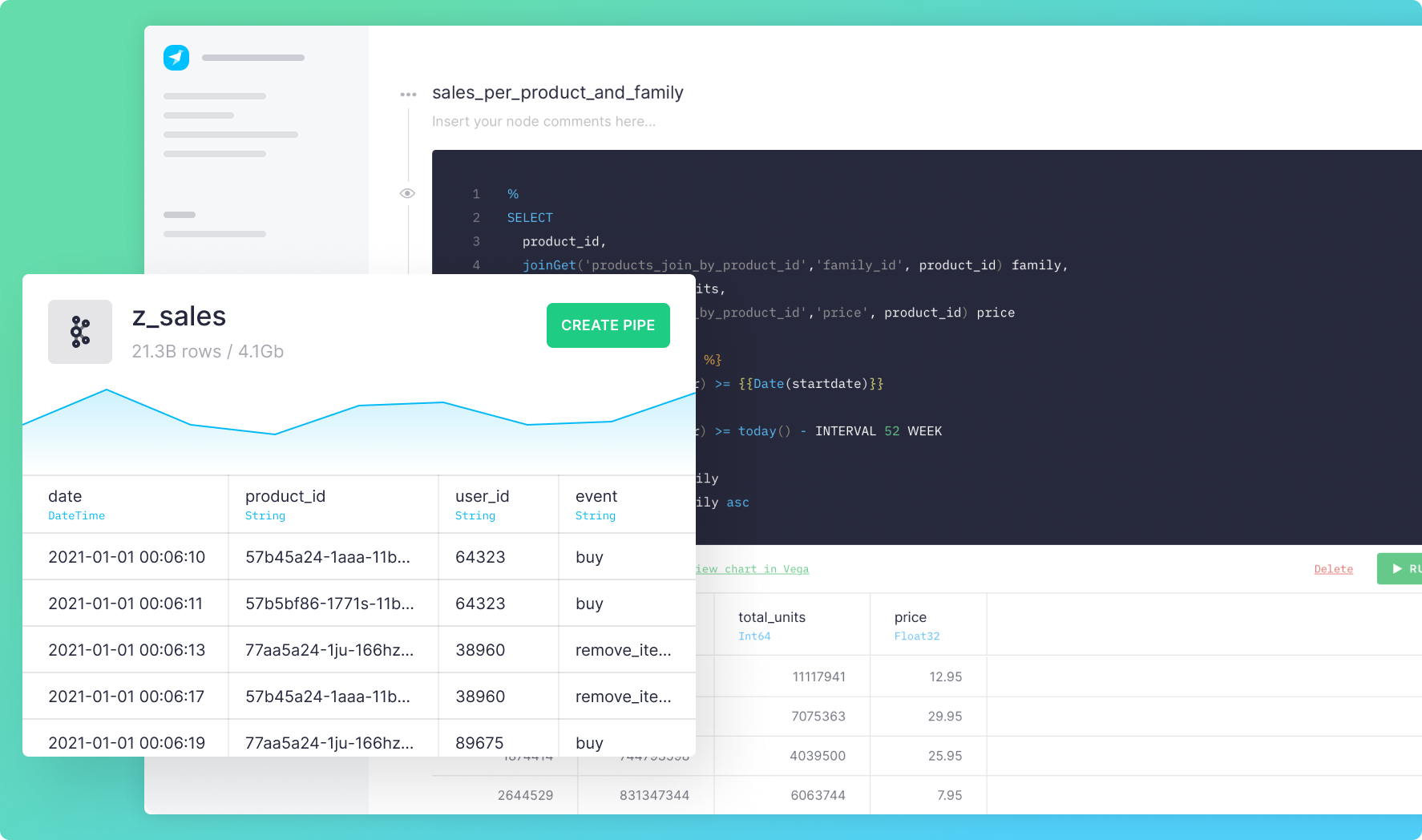- July 3, 2021
- by:
- in: Blog
Welcome back to This Week in Apps, the weekly TechCrunch series that recaps the latest in mobile OS news, mobile applications and the overall app economy. The app industry continues to grow, with a record 218 billion downloads and $143 billion in global consumer spend in 2020. Consumers last year also spent 3.5 trillion minutes using apps on Android devices
Welcome back to This Week in Apps, the weekly TechCrunch series that recaps the latest in mobile OS news, mobile applications and the overall app economy.
The app industry continues to grow, with a record 218 billion downloads and $143 billion in global consumer spend in 2020. Consumers last year also spent 3.5 trillion minutes using apps on Android devices alone. And in the U.S., app usage surged ahead of the time spent watching live TV. Currently, the average American watches 3.7 hours of live TV per day, but now spends four hours per day on their mobile devices.
Apps aren’t just a way to pass idle hours — they’re also a big business. In 2019, mobile-first companies had a combined $544 billion valuation, 6.5x higher than those without a mobile focus. In 2020, investors poured $73 billion in capital into mobile companies — a figure that’s up 27% year-over-year
This Week in Apps will soon be a newsletter! Sign up here: techcrunch.com/newsletters
Top Stories
Android App Bundles are now going to be required
This week Google announced it will require new apps to be published using the Android App Bundle as of August 2021. The company first launched the Android App Bundle standard, which replaces the APK, in May 2018 as part of its modern development push. Since then, the majority of the top 1,000 apps and games have switched over to AABs including those from companies like Adobe, Duolingo. Gameloft, Netflix, reBus, Rainy, and Twitter. Today, there are over 1 million apps using AAB in production.
AABs solve some problems with the aging APK standard, particularly around larger apps and games. With AABs, developers don’t have to create an APK that contains everything for every type of Android device. They offer a way to quickly and more efficiently download the assets needed for a particular device, and they do so in a way that focuses on getting the user or player to the app or game’s content as fast as possible.
But not everyone agrees the change is for the better. Those who utilize APK Hosting sites like APKMirror or APKPure to download and share apps worry that the shift to AAB is a way to force users to use the Play Store instead of alternatives. Meanwhile, Epic Games founder and CEO Tim Sweeney — who is taking on tech giants over their alleged app store monopolies with both lawsuits and lobbying — pointed out that the move away from the more open APK standard is about locking users into Google Play.
This is one of the many reasons we mustn’t accept the argument: “If you don’t like iPhone’s restrictions, buy an Android phone”.
Both companies have run amok, trampling the rights of users and developers alike. The distinction is just that Apple’s several steps ahead. https://t.co/m2ZIv7PnbK
— Tim Sweeney (@TimSweeneyEpic) June 30, 2021
Consumer Spending on apps hits record $64.9B in the first half of the year
Consumer spending in mobile apps hit a record $64.9 billion during the first half of 2021, according to preliminary data from app store intelligence firm Sensor Tower. This figure represents a 24.8% increase in spending seen across both the App Store and Google Play, compared with the year-ago period. But while industry experts believe the accelerated shift to mobile fueled by the pandemic is a trend that will continue, it’s worth noting that — despite the new record — the growth rate for consumer spending has slightly slowed, and the download growth slowed more dramatically.
From the first half of 2019 to the first half of 2020, consumer spending on mobile apps grew 28.4% from $40.5 billion to $52 billion, for comparison — slower than the 24.8% seen in the current period.
Weekly News
Platforms: Apple
 Apple launched the public betas of iOS 15, iPadOS 15 and watchOS 8. Although developers already had access to early builds, this week was the first time the public could get their hands on Apple’s latest software before its official launch this fall. One of the biggest changes in iOS 15 is the addition of “Focus” modes that give users more control over when and who can bother them with calls, texts and notifications during different contexts — like work, driving, sleeping, and more. Users will also gain access to SharePlay interactivity on FaceTime, iMessage improvements, the ability to FaceTime with Android friends via web links, spatial audio, Live Text (which unlocks info from your photos), app privacy reports, and upgrades to most of Apple’s core apps, and more.
Apple launched the public betas of iOS 15, iPadOS 15 and watchOS 8. Although developers already had access to early builds, this week was the first time the public could get their hands on Apple’s latest software before its official launch this fall. One of the biggest changes in iOS 15 is the addition of “Focus” modes that give users more control over when and who can bother them with calls, texts and notifications during different contexts — like work, driving, sleeping, and more. Users will also gain access to SharePlay interactivity on FaceTime, iMessage improvements, the ability to FaceTime with Android friends via web links, spatial audio, Live Text (which unlocks info from your photos), app privacy reports, and upgrades to most of Apple’s core apps, and more.
Platforms: Google
 Google is implementing stronger security measures on Google Play developer accounts in an attempt to crack down on spam and other malicious apps. Previously, the company required only an email and phone number to create a Google Play developer account. Now it will require an account type (personal or organization), a contact name and physical address, and it will require developers to verify their email and phone number. Google says the changes will allow it to better communicate with developers and will help to “make sure that every account is created by a real person with real contact details.” It’s also now mandating that users of Google Play Console sign in using Google’s 2-Step Verification.
Google is implementing stronger security measures on Google Play developer accounts in an attempt to crack down on spam and other malicious apps. Previously, the company required only an email and phone number to create a Google Play developer account. Now it will require an account type (personal or organization), a contact name and physical address, and it will require developers to verify their email and phone number. Google says the changes will allow it to better communicate with developers and will help to “make sure that every account is created by a real person with real contact details.” It’s also now mandating that users of Google Play Console sign in using Google’s 2-Step Verification.
Samsung and Google previewed their wearable platform ahead of the next Galaxy Watch launch. The two companies agreed to partner on wearables in order to better compete against Apple Watch. At Mobile World Congress, Samsung showed off the first device to feature the One UI Watch user experience and the new unified platform built in partnership with Google.
E-commerce
Instagram adds a new feature that will allow businesses in the U.S. to designate themselves as being Black-owned businesses using badges that appear on their profiles and on their product shopping pages. It may also be highlighted in places like the Shop tab, to help more potential customers discover the business.
Walmart partnered with mobile couponing app Ibotta on a multi-year deal that will offer cash-back rewards to Walmart customers that will be applied directly to customers’ Walmart accounts, where they can be used for future purchases. The offers will be made available on Walmart.com and inside the Walmart mobile app.
Following Apple and Google’s lead, Shopify dropped App Store commissions. However, it’s dropping its cut to 0% for the first million, and then will only take a 15% commission on “marginal” revenue above that $1 million. The change could increase pressure on other app stores to make further adjustments to their models in the future.
Augmented Reality
Rakuten Viber has partnered with Snap to bring augmented reality Lenses from Snapchat to its own Viber calling and messaging app. The over 30 Lenses will be built using Snap’s creative tools, including Bitmoji, Camera Kit, and Creative Kit and will offer AR-enabled messaging and photos to Viber’s users. The deal is another example of how Snap is growing its licensing business for its AR and creative tools alongside the development of its own social app.
Google’s Arts & Culture app created a new feature called Art Filter that allows everyone to learn about significant pieces of art from around the world and put themselves inside famous paintings using AR. Google talked this week about its work with MediaPipe to utilize their face mesh and 3D face transform tech to create custom effects for each of the artifacts chosen.
Fintech
Venmo introduced a new feature that allows users to add a “good and services” tag to payments sent to personal accounts to differentiate them from personal transactions. The system is meant to protect buyers and sellers, Venmo says. Buyers on these transactions will be eligible for Venmo’s Purchase Protection Program, but sellers are unable with the new fees associated with the change as Venmo will now deduct 1.9% of the transaction plus 10 cents from the money sent to the seller.
Intuit-owned finance and budgeting app Mint added the ability to track cryptocurrency investments across a number of supported exchanges, including Binance, BlockFi, Coinbase/Coinbase Pro, Gemini, Kraken, PayPal, and Robinhood. As a result, the app shot to No. 12 overall on the U.S. App Store on Wednesday and became the No. 1 app in the Finance category, though it has since dropped in ranking.
Social
TikTok is expanding its max video length to 3 minutes, up from 60 seconds, after testing this feature publicly for many months with a select group of creators. The feature will allow for more long-form video content, potentially making TikTok even more of a threat to YouTube.
Pinterest bans weight loss ads on its platform, becoming the first major social platform to take this sort of action. The company says social media plays a role in promoting harmful beauty standards, and ads that glorify weight loss contribute to a rise in disordered eating behaviors rather than healthy habits.
Instagram is developing its own version of Twitter’s Super Follow with “Exclusive Stories.” Instagram confirmed that the screenshots of an “Exclusive Stories” feature recently circulated across social media are from an internal prototype that’s now in development, but not yet being publicly tested. The feature would allow creators to offer Stories that only members (likely paying subscribers) would be able to see. These would appear on their profile in different colors and would display a message that their Story was only for members when others tried to view them. They could also be saved as Highlights, and can’t be screenshot, according to the leaks.
TikTok’s latest transparency report revealed the company removed 11,149,514 accounts in Q1 2021 for violating community guidelines or terms of service, which is fewer than 1% of total accounts. Of those removals, 7,263,952 were accounts belonging to children under 13.
Trump and Parler reportedly discussed a deal that would move the bulk of Trump’s social media presence to the right-wing Twitter alternative, according to New York Magazine. The deal would have seen Trump taking 40% of Parler’s revenues had it gone through. Parler was okay with the rev share, but wouldn’t ban Trump’s critics from the app, which scuttled the deal, the report said.
Instagram is testing a feature that would allow anyone to be able to share a link directly in their Stories through a linking sticker, which would work the same way the swipe-up links currently do. The company said the test is looking to understand how many people would use links, if available.
Twitter offered users a chance to receive one of seven free NFTs this week, which were minted on Rarible in editions of 20, making for 140 NFTs (get it?) in total. The NFTs were offered to those who replied to a post from the company’s main Twitter account, and could signal Twitter’s plans to invest in making NFTs more a part of its platform in the future.
Messaging
AT&T joined T-Mobile in switching its customers to use the Android Messages app as their default mobile messages app for both SMS and RCS services, making Verizon the only U.S. carrier that has not made a partnership deal with Google. RCS has a lot of advantages over SMS, including no character limits, the ability to send larger files, typing indicators, better group chat, Wi-Fi support and end-to-end encryption for one-on-one group chats. This makes it a more compelling alternative to Apple’s iMessage, but it requires carrier adoption.
Audio chat comes to the workplace as Slack this week released a new audio tool called Slack Huddles that allows users to have real-time conversations with colleagues in Slack’s app instead of typing. The company also offered more details about an upcoming feature that allows users to leave video messages and it showed off an upgraded employee directory. The video messages tool is being piloted while the directory is currently available to a limited number of Business + and Enterprise Grid customers.
The U.K. issued guidance to messaging apps operating in the country to not use end-to-end encryption on children’s accounts, asking companies to consider the risks that e2e poses to younger users, as it makes it more difficult to identify illegal and harmful content that takes place on private channels. A government spokesperson stressed that there’s a way to implement strong encryption in a way that’s consistent with public safety. Privacy activists disagree with this stance.
Telegram rolled out group video calls to its mobile and desktop apps after initially promising the feature was coming back in April 2020. The company says group video calls are limited to up to 30 people but it plans to increase that limit in the future.
WhatsApp is testing a redesigned voice message feature that will show short waveforms when the user is recording the message. After recording, the user can stop and listen to their message before sending it, too.
Dating
Dating app Bumble is planning to open its first cafe in New York later this month. The launch was originally planned for 2019, but was delayed due to the pandemic. The new venue, Bumble Brew, is being enabled by a partnership between the dating app maker and Italian restaurant Pasquale Jones. Decked out in Bumble’s yellow, the new cafe will open next to the restaurant, to offer a place for daters to meet for either coffee, cocktails or a meal.
Streaming & Entertainment
Netflix users on Android devices will now be able to start streaming titles that have only partially downloaded, which could help in the scenario where you’ve forgotten to download your favorite shows before boarding a plane. Before, until the download completed, you couldn’t watch any portion of the video at all.
Chinese TikTok rival Kuaishou and Tencent acquired the short-form rights to the upcoming Tokyo and 2022 Beijing Winter Olympics from state broadcaster CCTV. This makes the app the first short-form and livestreaming platform globally to become an official broadcaster of the Olympics.
Amazon Music Unlimited is giving subscribers up to six months of Disney+ for free (or three for existing subscribers). Disney’s isn’t the first to bundle a streaming deal with music. Hulu and Spotify had once done the same.
Spotify launched its Spotify Audience Network ad marketplace to advertisers and Megaphone publishers in Australia, Canada and the U.K., following its U.S. launch in February. The marketplace lets advertisers buy audio ads on and off the Spotify platform.
Gaming
Microsoft’s Xbox division announced the expansion of its Designed for Xbox mobile gaming accessories to iOS alongside the launch of the Xbox Cloud Gaming beta becoming available to Xbox Game Pass Ultimate members on Windows 10 PCs and Apple phones and tablets via the web browser at xbox.com/play.
As part of the accessories program expansion, the Backbone mobile controller joined the Designed for Xbox family with the Backbone One for Xbox, which supports all iPhones running iOS 13 or later. It also added OtterBox Power Swap Controller Batteries, a battery pack compatible with Xbox consoles, Android and iPhone devices.
Health & Fitness
Google announced this week an update to its Passes API which will allow developers to build functionality into their websites and apps to export COVID-19 test and vaccination records to a digital format that can be saved either in the Google Pay app or directly on the users homescreen as a shortcut. The API will only be open to developers at healthcare organizations, government agencies, and other organizations authorized by public health authorities, initially in the U.S.
Travel
App Annie spots signs of a pandemic recovery in its Q2 2021 report, noting in particular a rebound in travel apps. The firm found that monthly hours spent in Travel and Navigations apps are on an upward trend in markets like the U.S. and the U.K., where the rollout of vaccinations has been strong. South Korea is seeing an even better recovery, as time spent in travel apps has surpassed pre-pandemic levels. Travel apps in Brazil, France and India, however, have not yet reached pre-pandemic levels.
Drones
Alphabet’s Wing launched a free app in the U.S. called OpenSky aimed at both commercial and recreational drone pilots. The app shows pilots where it’s okay to fly using color-coded maps with greens, yellows and reds. It also allows pilots to submit requests to fly in controlled airspaces and receive near real-time authorizations. This feature works in hundreds of airspaces. The app had previously been available in Australia only.
Education
Facebook is launching an educational app called Sabee in Nigeria, which is the first of the company’s new efforts to more directly target the country, and eventually, the African continent, with new mobile products. The app is being published by the company’s NPE Team, an internal R&D incubator, which had focused on new social experiences until now.
Security & Privacy
Twitter users now have the option to use security keys as their only form of two-factor authentication (2FA), which the company notes is the most effective way to keep your Twitter account secure. Twitter has offered the option to use security keys as one of its 2FA options since 2018. However, this initial support only worked for Twitter.com, not the mobile app, and required users to have another form of 2FA enabled, too.
Funding and M&A (and IPOs!)
 Tapcart, a “Shopify for mobile apps,” raises $50 million Series B led by Left Lane Capital. The company offers a drag-and-drop builder that allows anyone to create a mobile app for their existing Shopify store and communicate with customers via push. Shopify was among the participating investors.
Tapcart, a “Shopify for mobile apps,” raises $50 million Series B led by Left Lane Capital. The company offers a drag-and-drop builder that allows anyone to create a mobile app for their existing Shopify store and communicate with customers via push. Shopify was among the participating investors.
 BreezoMeter, an iPhone app that measures air quality, raises a $30 million Series C led by Fortissimo Capital, bringing its total raise to date to $45 million. The company uses AI and machine learning to gather and understand data from multiple sources, including more than 47,000 sensors worldwide.
BreezoMeter, an iPhone app that measures air quality, raises a $30 million Series C led by Fortissimo Capital, bringing its total raise to date to $45 million. The company uses AI and machine learning to gather and understand data from multiple sources, including more than 47,000 sensors worldwide.
 Istanbul-based Dream Games raised $155 million Series at a $1 billion valuation in a round co-led by Index Ventures and Makers Fund. The mobile puzzle game developer is best known for Royal Match, which has 6M MAUs and $20M/month in revenue.
Istanbul-based Dream Games raised $155 million Series at a $1 billion valuation in a round co-led by Index Ventures and Makers Fund. The mobile puzzle game developer is best known for Royal Match, which has 6M MAUs and $20M/month in revenue.
 Apple and Snap partner Jigspace, “the Canva for 3D,” raised $4.7 million Series A in a round led by Rampersand. The free JigSpace app lets anyone combine presets and templates of 3D-modeled objects to create their own “Jigs” (models). The app has over 4 million users on the App Store.
Apple and Snap partner Jigspace, “the Canva for 3D,” raised $4.7 million Series A in a round led by Rampersand. The free JigSpace app lets anyone combine presets and templates of 3D-modeled objects to create their own “Jigs” (models). The app has over 4 million users on the App Store.
 South Korea edtech app maker Mathpresso raised $50 million in Series C funding from GGV Capital, Yellowdog, Goodwater Capital, and KDB. The service is used by over 9.8M users
South Korea edtech app maker Mathpresso raised $50 million in Series C funding from GGV Capital, Yellowdog, Goodwater Capital, and KDB. The service is used by over 9.8M users
 Robinhood files for its IPO. Earlier in the week, Robinhood agreed to pay $70 million in fines and restitution as part of its settlement with the Financial Industry Regulatory Authority over providing customers with “false or misleading information. The SEC, however, is still investigating the trading halt related to GameStop and other meme stocks. Robinhood has 18M accounts and $80B in assets. It will trade under “HOOD” on the Nasdaq.
Robinhood files for its IPO. Earlier in the week, Robinhood agreed to pay $70 million in fines and restitution as part of its settlement with the Financial Industry Regulatory Authority over providing customers with “false or misleading information. The SEC, however, is still investigating the trading halt related to GameStop and other meme stocks. Robinhood has 18M accounts and $80B in assets. It will trade under “HOOD” on the Nasdaq.
 Women’s social networking app Peanut launches a microfund called StartHER to begin investing in early, pre-seed stage startups led by women or other historically excluded groups.
Women’s social networking app Peanut launches a microfund called StartHER to begin investing in early, pre-seed stage startups led by women or other historically excluded groups.
 Social media app LYKA, focused on Southeast Asia, inked a deal with music-streaming technology company Tuned Global to integrate an immersive music-streaming service directly inside its app. The partnership will allow LYKA to provide on-demand streaming of music, video, and podcasts to the app’s users.
Social media app LYKA, focused on Southeast Asia, inked a deal with music-streaming technology company Tuned Global to integrate an immersive music-streaming service directly inside its app. The partnership will allow LYKA to provide on-demand streaming of music, video, and podcasts to the app’s users.
 Chinese m-commerce app Dingdong made a small gain during this week’s IPO, with shares that closed at $23.52, up 2 cents from its offer price, on its first day of trading. The app allows customers to buy fresh produce, meat, seafood and other daily necessities.
Chinese m-commerce app Dingdong made a small gain during this week’s IPO, with shares that closed at $23.52, up 2 cents from its offer price, on its first day of trading. The app allows customers to buy fresh produce, meat, seafood and other daily necessities.
 Vietnamese investment app Infina raised $2 million in seed funding for its Robinhood-like app launched in January 2021, which now has some 500,000 trading accounts.
Vietnamese investment app Infina raised $2 million in seed funding for its Robinhood-like app launched in January 2021, which now has some 500,000 trading accounts.
 Gaming chat app Discord acquired AR startup Ubiquity6, which had raised $37.5 million in funding from top investors including Benchmark, First Round, Kleiner Perkins and Google’s Gradient Ventures. The startup had recently abandoned some of its projects, indicating it may have been struggling to find traction. Deal terms weren’t disclosed.
Gaming chat app Discord acquired AR startup Ubiquity6, which had raised $37.5 million in funding from top investors including Benchmark, First Round, Kleiner Perkins and Google’s Gradient Ventures. The startup had recently abandoned some of its projects, indicating it may have been struggling to find traction. Deal terms weren’t disclosed.
 Edtech unicorn Duolingo filed to go public following 129% revenue growth in 2020. The 400-person company had $161.7 million in revenue in 2020 and had recently turned profitable.
Edtech unicorn Duolingo filed to go public following 129% revenue growth in 2020. The 400-person company had $161.7 million in revenue in 2020 and had recently turned profitable.
 Family app Life360 announced a $2.1 million investment round from celebs and influencers who will now help to advise the company on new features and help with product marketing. The round was led by Bryant Stibel, the firm co-founded by the late Kobe Bryant and business partner Jeff Stibel. Other investors included Vanessa Bryant, Joanna and Chip Gaines, Tony Hawk, Chris and Jada Paul, TikTok influencer Billy Perry, and Nicole and Michael Phelps. Life360 currently trades on the ASX.
Family app Life360 announced a $2.1 million investment round from celebs and influencers who will now help to advise the company on new features and help with product marketing. The round was led by Bryant Stibel, the firm co-founded by the late Kobe Bryant and business partner Jeff Stibel. Other investors included Vanessa Bryant, Joanna and Chip Gaines, Tony Hawk, Chris and Jada Paul, TikTok influencer Billy Perry, and Nicole and Michael Phelps. Life360 currently trades on the ASX.
 Age of Learning, the creator of childhood education app ABCmouse, raised $300 million in a new round of funding led by TPG. The new investment more than doubled the company’s valuation to $3 billion. The company says it will use the funds to accelerate international expansion and the development of its next generation of apps.
Age of Learning, the creator of childhood education app ABCmouse, raised $300 million in a new round of funding led by TPG. The new investment more than doubled the company’s valuation to $3 billion. The company says it will use the funds to accelerate international expansion and the development of its next generation of apps.
 Exercise and corporate wellness app Gympass raised $220 million in Series E funding. The Brazil-based app saw a record 4 million monthly check-ins across its network of more than 50,000 global partners in May.
Exercise and corporate wellness app Gympass raised $220 million in Series E funding. The Brazil-based app saw a record 4 million monthly check-ins across its network of more than 50,000 global partners in May.
 Digital greeting card app Givingli raised $3 million in seed funding in a round led by Reddit co-founder Alexis Ohanian’s Seven Seven Six. The app aims to modernize the digital greeting card business for Gen Z users and monetizes through a $3.99 per month premium subscription and gift card sales. Snap also invested in the round after earlier partnering with the startup on a Snap Mini app.
Digital greeting card app Givingli raised $3 million in seed funding in a round led by Reddit co-founder Alexis Ohanian’s Seven Seven Six. The app aims to modernize the digital greeting card business for Gen Z users and monetizes through a $3.99 per month premium subscription and gift card sales. Snap also invested in the round after earlier partnering with the startup on a Snap Mini app.
 Buzzer, a live sports app, raised $20 million in Series A funding from a number of sports and entertainment backers, including Michael Jordan, Naomi Osaka, Patrick Mahomes and others.
Buzzer, a live sports app, raised $20 million in Series A funding from a number of sports and entertainment backers, including Michael Jordan, Naomi Osaka, Patrick Mahomes and others.
Downloads
Brickit

Image Credits: Brickit
The new Brickit mobile app is a Lego fan’s dream and an impressive use of computer vision technology. The app is able to quickly analyze a pile of Legos to identify which bricks you have in your collection. It then serves up some projects where you have all, or at least most of, the bricks you need to build. The process is very fast, too — the app makes sense of hundreds of bricks in your pile within just seconds. Brickit doesn’t come from Lego directly, however, which limits some of its capabilities in terms of integrating with Lego’s larger library of instructions. But, in time, it will likely generate some data on the Lego collections users have at home which could make it an interesting acquisition target for Lego, in addition to the tech itself.
Reading Rec’s
Three Weeks with iOS and iPadOS 15: Foundational Updates by Federico Viticci for iMore. A great in-depth review and analysis of what’s new with Apple’s latest software update.
Tweets
It really is quite incredible that ~30 days after a major iOS release 70% of users have updated. Apple’s multi-year push to get most users on auto-update and then tightly managing the rollout is such a fantastic thing for the platform. (chart by @alexdbauer) pic.twitter.com/OKrgjZjH8m
— David Barnard (@drbarnard) June 30, 2021
This new app called “Fave” just launched — it’s basically a social network for fandoms.
Currently, it’s only for Swifties.
Turns out no one remembered to claim @taylorswift. 
So I’m now Taylor Swift on a platform about Taylor Swift. pic.twitter.com/YFSuIzEJ0y
— Noah Evans (@ThisIsNoahEvans) June 30, 2021






 Apple launched the public betas of iOS 15, iPadOS 15 and
Apple launched the public betas of iOS 15, iPadOS 15 and  Tapcart, a “Shopify for mobile apps,”
Tapcart, a “Shopify for mobile apps,”  Robinhood
Robinhood  Social media app LYKA, focused on Southeast Asia,
Social media app LYKA, focused on Southeast Asia, 








